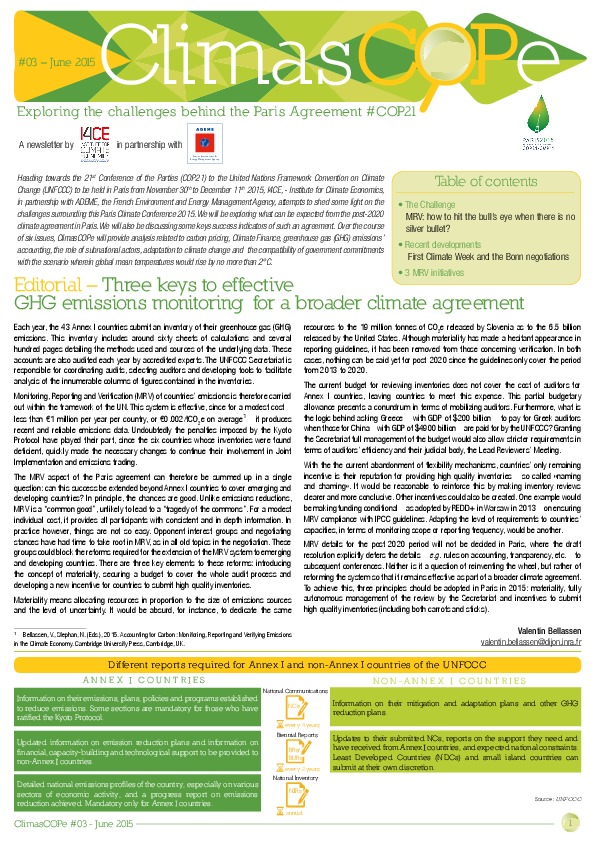The accounting of GHG emissions (MRV)
Heading towards the 2015 Paris international Climate Conference (COP21), I4CE, in partnership with ADEME, the French Environment and Energy Management Agency, publishes a ClimasCOPe # 3 aiming to shed some light on the challenges of international climate negotiations.
ClimasCOPe # 3 is focused on the challenge of Monitoring, Reporting and Verification (MRV) of GHG emissions. After an editorial titled « Three keys to effective GHG emissions monitoring for a broader climate agreement » written by V. Bellassen from INRA, I4CE experts analyze the issue of MRV challenge in the Paris Climate 2015 agreement, present last steps in international climate negotiations and key initiatives of MRV methodologies developed in the world.

